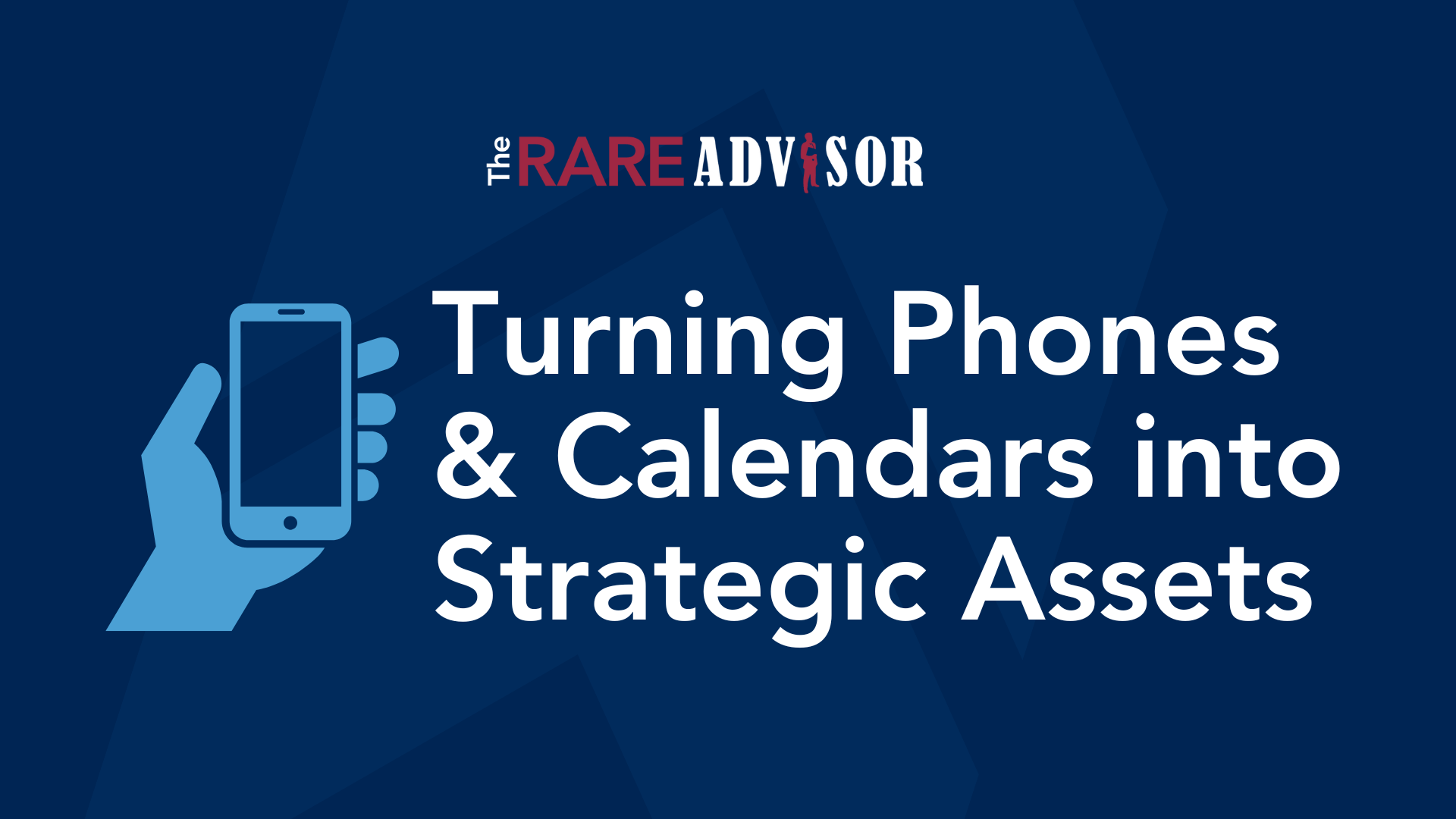Using Testimonials in Your Financial Advisor Marketing

The most exciting update from the SEC’s New Marketing Rule of November 2022 was allowing the use of testimonials in financial advisor’s marketing. The industry has been slow to adopt testimonial use, in part because it can be awkward to ask for reviews, endorsements, and testimonials. Let’s talk about the most common questions the marketing team here at USA Financial gets asked.
Why should I use testimonials?
Testimonials are great to use in your marketing and brand collateral because they highlight the value of transparency and help provide social proof to prospects and clients. With the widespread nature and consumer preference of testimonials and reviews in other industries, highlighting client experiences will continue to be a focus of small businesses, including financial practices. Trust and relationship building are vital in sensitive industries like financial services, so collecting and sharing feedback from your clients will continually be an emphasis and so should be a priority for your marketing.
What is the process for using testimonials in my marketing?
The first step is collecting them. It is the hardest and most awkward step because people often get caught on questions like how and when to ask, and they're worried about making things awkward. Next, you’ll need to get them approved by your compliance department. Our team created a specific submission for testimonials and endorsements in our ad review system to meet the screening requirements. The last step is displaying and showcasing them for clients and prospects!
When should I ask?
This is totally up to you, of course. If you want to be proactive, you could work an ask into your onboarding process or client review meetings (while you’re top of mind for your client). This will also bring you consistent feedback on the client experience you provide. If you have a technology that allows for automation, you could even direct people to your preferred collection method through automation. You can also ask for them in response to kind comments you’re receiving anyway via thank you notes, emails, or in person comments. Accepting their thanks with grace and making it an ask can be very effective. (For example, simply saying “thank you so much… would you mind putting that in an email so that we can use it in our marketing materials? It could really help new clients or those considering working with us to hear your experience.”)
What do I ask?
While you cannot guide their words, you can likely ask questions to get them thinking about their experience in advance of sharing a testimonial. You can also tell them to not include specific account information, personal information, promises or guarantees, or investment performance metrics. (Again, please discuss with you firm’s compliance team.) A few example questions to help them know how to structure their answer might be:
- Can you share how you felt about your financial situation before and after we started working together?
- What specific aspect of our process did you find most valuable or beneficial?
- If you had to describe our financial planning process in one word, what would it be and why?
How do I ask for testimonials?
How you ask will depend on your relationship and strategic plan for collection but can also vary based on your preferred collection method. Consult with your compliance team on what is allowed, but here are a few methods for collection:
- Google Reviews: If your business is listed on Google, it is available to the public to review.
- Direct Email Requests: Send personalized emails to clients asking for their feedback and testimonials. Include specific questions to guide their responses.
- Client Interviews: Conduct one-on-one interviews with clients to gather detailed testimonials. These can be done in person, over the phone, or via video conferencing.
- Website Forms: Create a dedicated form on your website where clients can share their experience. Make it easy to fill out and submit.
- Video Software: Consider using specialized software to streamline the testimonial collection process and manage responses.
How can I display testimonials?
Once you’ve collected testimonials, you need to display them! Your compliance department may require you to list their name and “clearly and prominently” state if they are a client next to their name when using a quote from them. (e.g. John D., Current Client), but with their permission you can share testimonials in many places, such as:
- Office Collateral: In place of inspirational quotes, random statistics, or your business tagline, you can use a real quote from a consumer.
- Onboarding Documents: As you’re preparing a prospect to be a part of your clientele, sharing the experiences of others can be reassuring.
- Prospecting Materials: Whether it’s an event, ad, or mailer, you can now include testimonials on collateral intended to spark interest in from those that are not yet clients.
- Social Media: Share via graphics, text, or videos submitted to show what others are saying.
- Websites: When clients or prospects check out your website, why be the only one telling them what working with you is like?
Incorporating testimonials into your marketing as a financial advisor can significantly enhance your credibility and help bring new and potential clients some confidence as they can see other people’s experience with you. Working a testimonial ask into your process can help hold you accountable to collecting these, and once you’ve received a few responses you may find it easier to ask others or recognize opportunities to ask for reviews. As the financial services industry continues to evolve, embracing testimonials in your marketing strategy will help you build trust through social proof, demonstrate value without it being your word, and stand out in a competitive market.
Author Info

Kim Weber is the Marketing Project Manager at USA Financial. Since joining in 2021, she has overseen several marketing programs that help...
Related Posts

Access by Design: Turning Phones and Calendars into Strategic Assets
In this episode of The RARE Advisor, host Aaron Grady and practice management consultant Allan Oehrlein continue their discussion on time allocation by exploring what comes next: operationalizing structure across the entire advisory team. They break down why the phone is the “front door” to the firm and the calendar is the “engine room,” and how elite practices use standardized phone scripts, the strategic power of the word “unavailable,” intentional scheduling rules, and team empowerment to build consistency, capacity, and trust. Aaron and Allan outline how designed access—not unlimited access—creates scalability and a stronger client experience, while reducing reactivity, burnout, and advisor bottlenecks. They also offer practical challenges advisors can implement immediately to redesign their phone and scheduling processes in ways that elevate both team culture and enterprise value.

The Psychology Behind Your CTA: Why Prospects Don’t Click “Book a Call”
In this episode of Financial Advisor Marketing Playbook, Mark Mersman breaks down the real psychological barriers that stop prospects from clicking “book a call” on an advisor’s website—and how small language and design changes can dramatically improve conversions. You’ll learn practical, compliant fixes including softer CTA language, expectation statements, empathy‑based messaging, simplified design, and reassurance techniques that lower emotional friction. If you want a website that encourages prospects to take the first step confidently, this episode delivers actionable guidance advisors can implement immediately.

5 Marketing Trends for Financial Advisors in 2026
Have you noticed how fast technology is changing the way you work with clients? Artificial Intelligence (AI) isn’t just a buzzword anymore; it’s transforming how you connect, deliver value, and grow. As financial advisors, you're positioned at the unique intersection of technology, finance, and marketing—and the pace of change shows no signs of slowing down.

Access by Design: Turning Phones and Calendars into Strategic Assets
In this episode of The RARE Advisor, host Aaron Grady and practice management consultant Allan Oehrlein continue their discussion on time allocation by exploring what comes next: operationalizing structure across the entire advisory team. They break down why the phone is the “front door” to the firm and the calendar is the “engine room,” and how elite practices use standardized phone scripts, the strategic power of the word “unavailable,” intentional scheduling rules, and team empowerment to build consistency, capacity, and trust. Aaron and Allan outline how designed access—not unlimited access—creates scalability and a stronger client experience, while reducing reactivity, burnout, and advisor bottlenecks. They also offer practical challenges advisors can implement immediately to redesign their phone and scheduling processes in ways that elevate both team culture and enterprise value.

The Psychology Behind Your CTA: Why Prospects Don’t Click “Book a Call”
In this episode of Financial Advisor Marketing Playbook, Mark Mersman breaks down the real psychological barriers that stop prospects from clicking “book a call” on an advisor’s website—and how small language and design changes can dramatically improve conversions. You’ll learn practical, compliant fixes including softer CTA language, expectation statements, empathy‑based messaging, simplified design, and reassurance techniques that lower emotional friction. If you want a website that encourages prospects to take the first step confidently, this episode delivers actionable guidance advisors can implement immediately.

5 Marketing Trends for Financial Advisors in 2026
Have you noticed how fast technology is changing the way you work with clients? Artificial Intelligence (AI) isn’t just a buzzword anymore; it’s transforming how you connect, deliver value, and grow. As financial advisors, you're positioned at the unique intersection of technology, finance, and marketing—and the pace of change shows no signs of slowing down.

